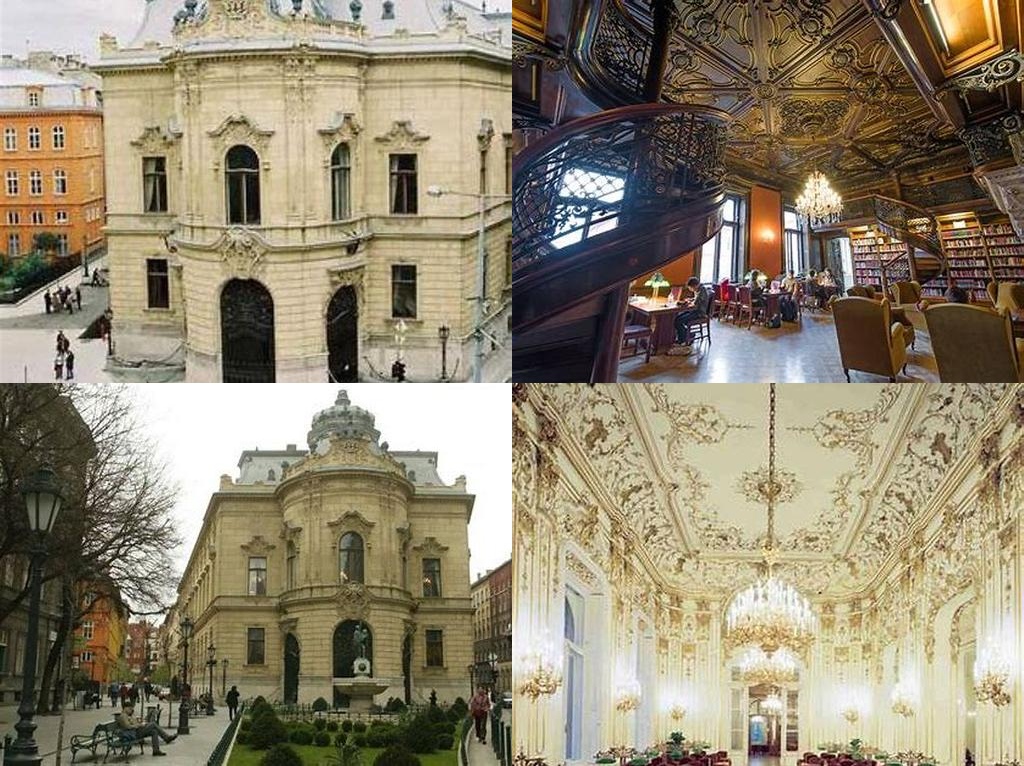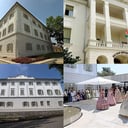
Szabó Ervin Könyvtár isn’t just another entry on Budapest’s long list of impressive buildings—it’s an atmospheric journey, especially for those with a weakness for old books, creaking parquet floors, and a bit of fin-de-siècle grandeur. While most tourists might beeline for Andrássy Avenue or get lost in the maze of ruin pubs in the Jewish Quarter, wandering through the main branch of the Metropolitan Ervin Szabó Library is a quieter, deeply rewarding experience. It manages to be both a working public library and a living museum of togetherness, learning, and quirky Budapest history.
The heart of the library beats inside the Wenckheim Palace, a neo-baroque marvel built in 1887. At first glance from the square, you might assume this palatial edifice is another bourgeois relic clinging to the city’s 19th-century glory—but step inside and the air shifts. Picture frescoed ceilings, enormous mirrors, marble staircases, and shelves lined with row after row of scholarly-looking tomes. Architectural purists will notice how the rooms have preserved much of their original splendor: solemn reading nooks decked with ornate columns, grand halls with rococo chandeliers, and private salon-style corners perfect for quiet, rainy afternoons. For those who dream of studying in settings worthy of a Wes Anderson film, this is your spot.
What makes the Ervin Szabó Library so unique? Part of the answer lies with its namesake, Ervin Szabó—a sociologist, librarian, and all-around intellectual catalyst in early-20th-century Hungary. After being appointed director in 1911, he set out to make Budapest’s central public library more accessible and modern, championing ideas about education and self-improvement for all. Today, this legacy pulses through the marble halls, not just reflected in the collection’s size (over 2 million items and counting!) but in the wide cross-section of people shuffling through the doors: earnest students hunched over laptops, elderly locals reading newspapers, families ducking into children’s rooms, and travelers like you weaving through the stacks with wide-eyed reverence.
A huge part of the joy here is letting yourself get a little lost. You can start in the palace’s sumptuous historic rooms: the Main Reading Room, glowing with natural light, is something out of a period drama, and the spiral wooden staircase in the library’s oldest wing inspires an urge to throw on a tweed jacket and pretend you’re a philosopher, even if only for a few minutes. Even if you don’t know a word of Hungarian, perusing the shelves—catching glimpses of everything from battered tomes on Habsburg history to shiny manga volumes—is a solid way to explore Budapest’s intellectual side.
Admission isn’t free, but it’s affordable, and visitors can purchase a day pass granting access to the grandest rooms (and all their Instagram-worthy corners). If you’re a true bibliophile or just craving a slower pace, plan to spend a couple of hours here. Settle into one of those plush chairs, run your fingers along the velvet curtains, and let the echo of whispered conversations float around you. Sometimes, especially amid the city’s outdoor bustle, there’s something exhilarating about being indoors surrounded by quiet curiosity, ancient woodwork, and stories waiting to be discovered.
The Szabó Ervin Könyvtár is much more than just a library. It’s an invitation to take a breath, dig into layers of Budapest that guidebooks rarely cover, and meditate on the role of books and public spaces in city life. Whether you’re seeking shelter on a rainy day, researching Hungarian poetry, or just looking for that singular jolt of inspiration only a beautiful old building full of books can provide, this is the spot. No itinerary, no noisy crowds—just a few quiet hours in one of the city’s most marvelous, moody interiors.





